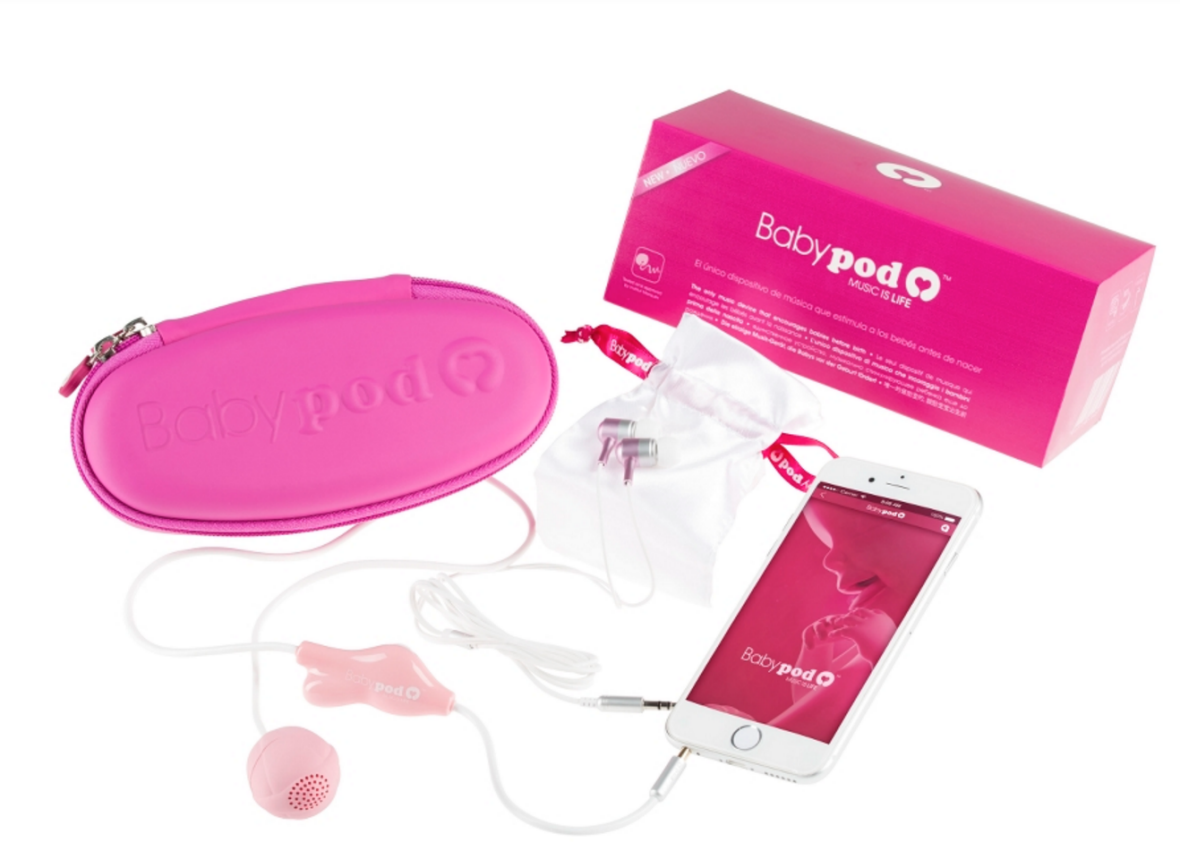A woman’s ability to influence her baby in utero is a point of contention among scientists. Should a mother be exposed to especially toxic chemicals, have uncontrolled diabetes, or experience trauma on the magnitude of war or a natural disaster, there is a chance her baby’s physical and/or cognitive development will be affected. Aside from these more extreme circumstances, there doesn’t seem to be much definitive evidence that a reasonably healthy and emotionally stable mother-to-be can make or break her future child while he or she is still inside her.
Nevertheless, mothers are regularly given advice and hawked products promising to optimize results. (And lest you blame this on the current climate of intensive, competitive parenting, a book published in 1982, The Secret Life of the Unborn Child, promises to teach parents how to “give your baby a greater chance for health and happiness—months before birth!”) The latest entry in this market is the Babypod, an intravaginal speaker that allows your fetus to hear music with “almost as much intensity and clarity” as if it were listening to a stereo outside the womb.
Music is known to improve neurological development in the areas of communication and movement, so, the Babypod website asks, why not begin playing it for your little one as soon as possible? Of course, pregnant women have long been advised to sing to their wombs, and there’s even the possibility of pressing headphones against one’s belly, which I personally have yet to witness in real life but is rather popular in stock photos. Not good enough, says the Babypod website, which claims that the layers upon layers of acoustically inconvenient tissues and fluids surrounding the fetus muffles any sounds coming from outside the belly. The Babypod claims that by avoiding many of these barriers, it is better suited to stimulate the vocalization of babies before birth. (Nowhere does it explain why this is necessary.)
The research is hardly conclusive as to whether singing to fetuses is necessary for development at all, let alone whether a mother needs a $132.94 gadget and a Spotify playlist filled with vagina-friendly songs. There’s evidence that newborns recognize music they heard in the womb and that hearing a familiar song can be a source of comfort, but scientists don’t believe the children are learning anything from it or getting any kind of cognitive head start. And this doesn’t change if you switch up your Miley for some Mozart. Overall, scientists are beginning to question whether these early intelligence-boosting interventions, inside the womb or out, have any lasting effects on children’s IQs. This doesn’t mean parents shouldn’t try to stimulate their children, just that it requires a lifelong commitment as opposed to a few cantatas played in utero.
Pregnancy is stressful, particularly for first-time mothers, and one of the hardest parts is navigating all that stuff. There is a sea of products to choose from, many of which make big promises that parents-to-be convert into guilt. Not getting the bathtub with the built-in thermometer can easily morph into a minor act of child abuse in the minds of the expecting. Lest you think this is the paranoia of a recently pregnant woman talking, the baby care market has grown tremendously in recent years and is on its way to becoming a $66.8 billion industry in 2017, up from $44.7 billion in 2011. Indeed, Pamela Paul tried to warn us in her 2009 book Parenting Inc., a chronicle of the rise of Big Parenting and the way it preys on the vanities and anxieties of contemporary parents.
Ultimately, many baby-related decisions, including what to buy, come down to whether they would benefit the parents, not the children. Newborns and infants are far more resilient than the baby-product market tells us. So do unborn children need the Babypod? No. But if a pair of techy, music-loving parents think it will help them feel like they are creating a bond with their baby, and that will then soften the shock of the post-delivery is-thing-is-mine? moment, then perhaps they should get one. The rest of us can stick with singing or playing music outside of our vaginas.
